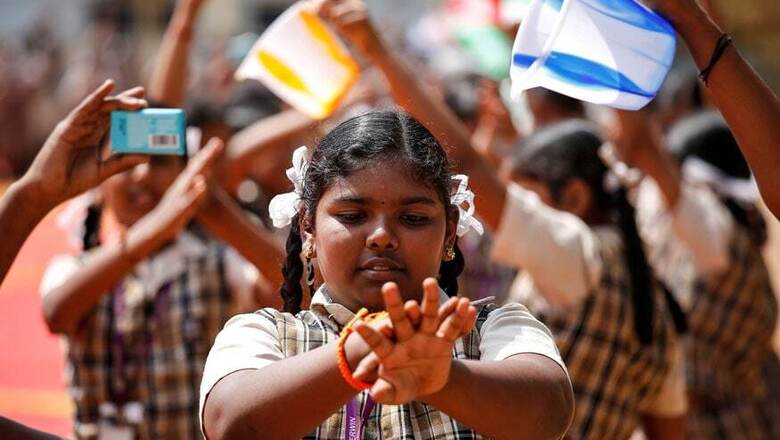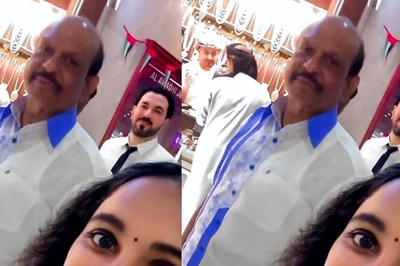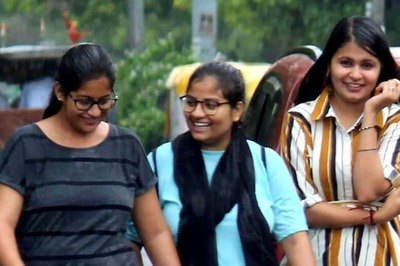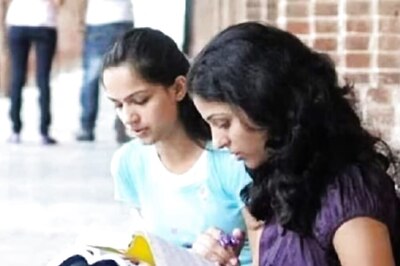
views
"Had this Coronavirus situation come last year, it would have been a disaster. At least we have been given one (problem) at a time."
Dr T Prabhushankar, Executive Director of Chennai Metropolitan Water Supply and Sewerage Board, sums up the water situation as the city enters its summer in the times of the COVID-19 spread.
Chennai residents are unlikely to forget the summer of 2019. Around this time last year, they were paying up to Rs 4,000 for a 12,000-litre tanker lorry that would normally cost around Rs 1,200. The state-owned Metro Water struggled to keep up with the demands as the city's reservoirs and groundwater nearly dried up, leading to private operators charging as per demand. In many places, the situation was so bad that even money was not a sure way to get water.
Fortunately, the government is in a much better position this summer even if there is an increase in demand of per capita consumption of water. Washing hands frequently and maintenance of personal hygiene requires much more water, but it might not necessarily lead to water shortage in the city in the coming months. A near-normal north-east monsoon in 2019 and more importantly, the release of Krishna water from Andhra Pradesh have proved to be game changers.
The combined storage of the Poondi, Cholavaram, Red Hills and Chembarambakkam reservoirs tally 6,278 million cubic feet (mcft) as of April 8. Last year this time, the number stood at 605.
"It's nothing similar to last year," says Prabhushankar. "We had a sort of a normal north-east monsoon last year. More importantly, we received Krishna water. So far we have received around 7.7 tmc (thousand million cubic feet); it is the second largest volume in the last 25 years. That has kept the reservoirs going. It is 7.2 tmc (including Veeranam) out of a total possible 12.7. That's quite a healthy storage. The groundwater is also quite good compared to last year because it had plummeted last year. We have good surface water as well as groundwater. We are supplying 650 MLD (million litres per day) now and we might increase it further."
The other big factor that has helped the situation is the government setting up two tertiary treatment reverse osmosis (TTRO) plants last year for water supply to industries. While the industries largely relied on surface and ground water until last summer, the TTRO plants have allowed them to reuse water for their needs. Industries are shut due to the lockdown at the moment, but even when they open, the water requirements of the residents are not likely to be impacted.
"We have substituted industrial supply with reused water. We have stopped supplying surface water to industries," says Prabhushankar.
While industries have a separate source, commercial establishments (hotel and hospitality sectors, educational institutions) being shut has helped the city save up groundwater. Reportedly, the water requirement along the Rajiv Gandhi Expressway (Old Madras Road) which houses plenty of companies and educational institutions, has gone down to 1 crore litres a day from 3 crore litres a day.
"Because the companies are closed, the use of groundwater is reduced. That's the cushion we have," says Dr S Janakaraj, former professor of Madras Institute of Developmental Studies.
"On the other hand, if we look at the people's need, the domestic water demand has gone up. Personal hygiene has to be maintained, people have to wash their hands regularly. So people are using more water. Earlier, if the per capita usage was 80 litres, now it's between 90 and 100. We have to wait and see if this balances out the cushion gained from the closing of companies. Now everyone is staying at home, so they need water for domestic purposes. The demand in the offices is minimal, but that's compensated for by people's presence at home. It's not like the water demand has gone down. People cannot compromise on use of water for personal hygiene. How to source water, whether we have that much water is a still a big question mark. That is going to remain the same."
While there is no clear data, Prabhushankar estimates that there could be a 10 per cent reduction even with the increased domestic demand.
The situation is clearly better compared to last year, but that doesn't mean the city should forget the harsh lessons learnt.
"We might be able to sustain through this summer," points out Janakaraj. "But Chennai has another issue. It's not like the summer ends in June. The south-west monsoon is not going to be our primary source of water. We really have to wait for the north-east monsoon to set in, which comes in October. So Chennai in effect has two summers. One is before the south-west monsoon, and then one more around end of July peaking in August and September. So we have to manage water till October. That will be difficult. We may be able to sustain till May-June, but after that it will be difficult."
Prabhushankar says Chennai has water to last the entire year, but stresses that residents should remember to save water.
"As we go into the summer, the water table will slightly go down. But we have enough water for the entire year. There won't be any problem," he says. "The focus is on fighting the crisis and fortunately we can afford to supply more water if needed, rather than talking about water conservation for the time being. Metro Water is also disinfecting various places, we have pledged more vehicles to disinfect the entire city and helping the Corporation. Citizens should maintain personal hygiene and wash hands, but that shouldn't translate to wasting water.




















Comments
0 comment